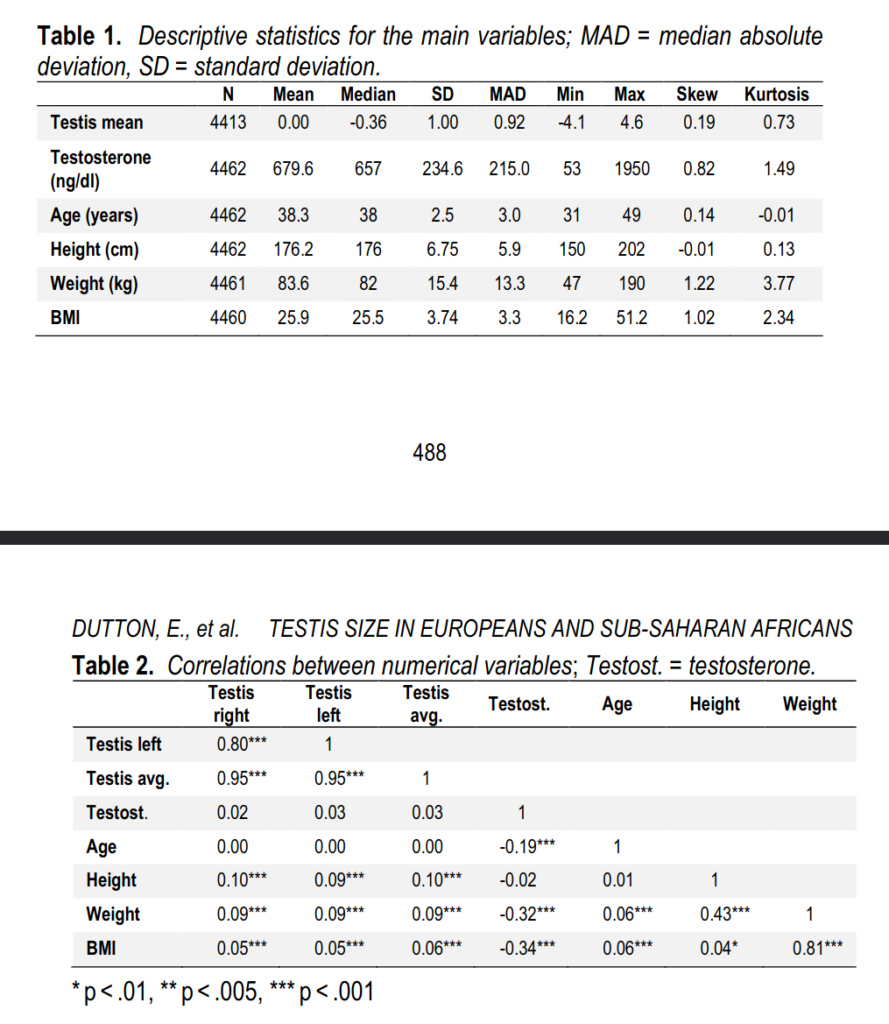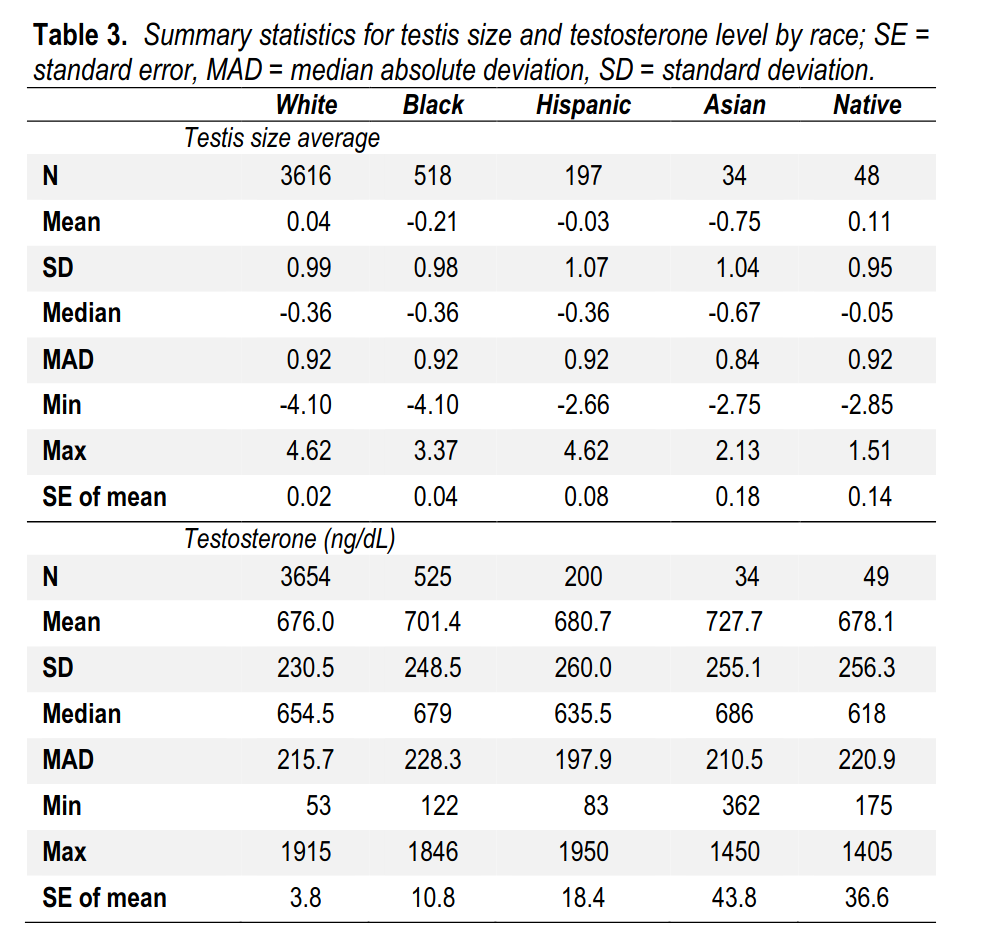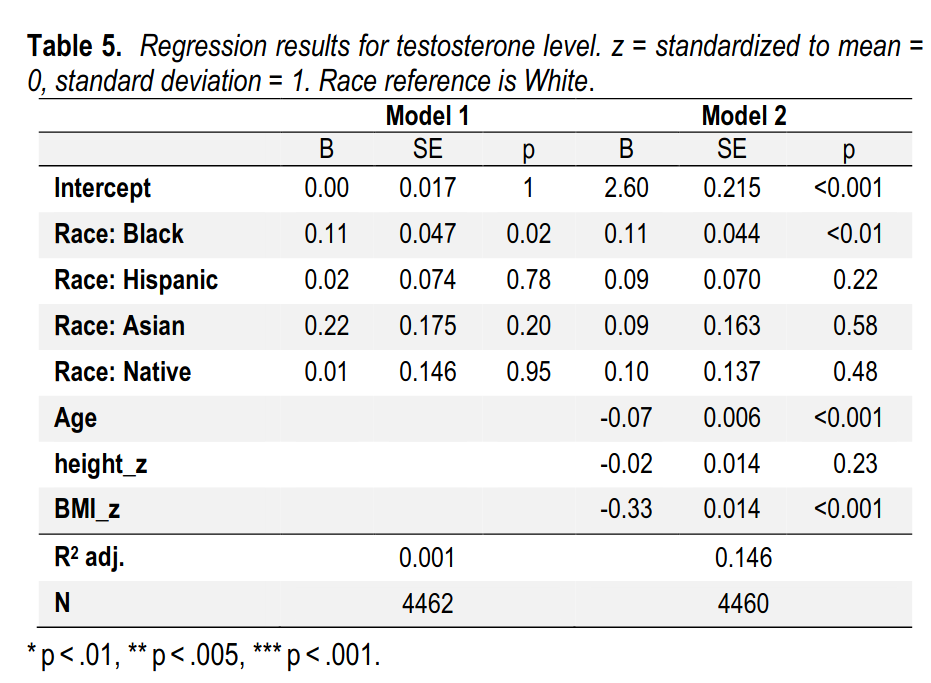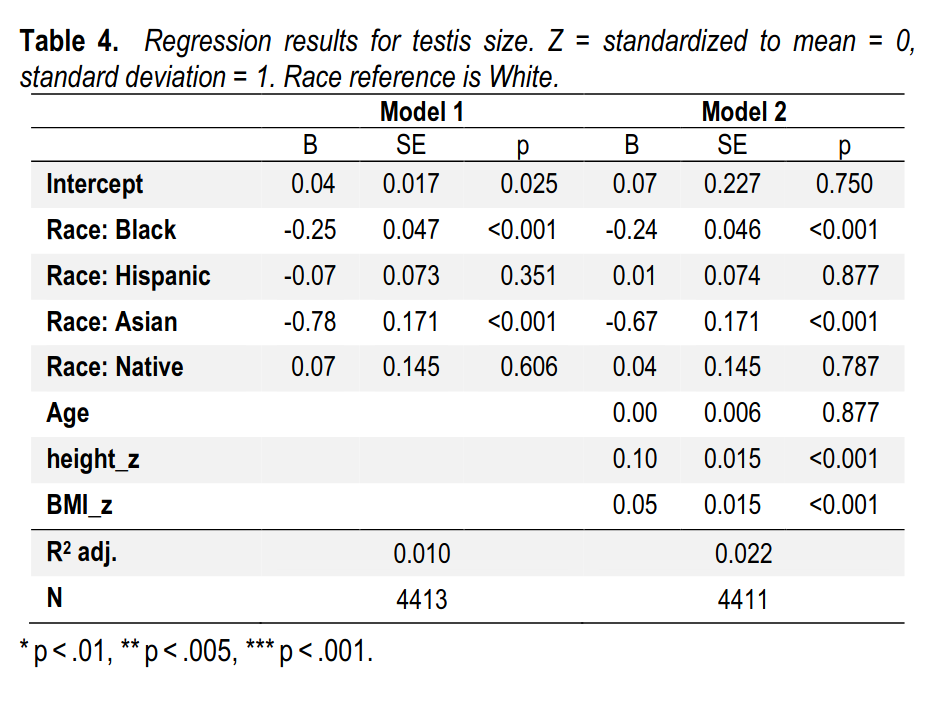Together with Ed Dutton and Helmuth Nyborg:
- Dutton, E., Nyborg, H., & Kirkegaard, E. O. W. (2022). Europeans Have Larger Testes than Sub-Saharan Africans but Lower Testosterone Levels. Mankind Quarterly, 62(3), Article 4. https://doi.org/10.46469/mq.2022.62.3.4
Species and subspecies differ substantially in the size of their testicles. A study has found differences in average testis size when comparing Europeans and Northeast Asians. Other studies have found differences in testosterone levels between Blacks, Whites and Northeast Asians. We sought to replicate and extend these findings in a dataset of 4,462 US soldiers (the Vietnam Experience Study). We find that those of Sub-Saharan African descent (Blacks, n = 525) average smaller testes than those of European descent (Whites, n = 3,654), d = 0.24, while Blacks average higher testosterone levels, d = 0.11. These patterns are not explained by differences in age, weight, or height. We discuss these findings in terms of evolutionary theory of sperm competition and mating systems. These differences are thought to relate to life history speed differences, especially regarding mating patterns. A more polygynous mating pattern is associated with smaller testes and high testosterone, whereas a more competitive/free mating pattern is associated with larger testes, helping with semen production and thus sperm competition. These findings are consistent with how individual level differences in ejaculate quality relate to life history speed.
Believe it or not, people measure ball size using mostly a hands-on approach:

The doctor feels the one nut with his hand, and this device with the other, and tries to pick the matching sized bead. Seems crazy? It works well when compared with gold standard ultrasound.
Correlations and summary statistics:

Summary statistics by race:

Regression models, first testosterone level:

And testicles size:

So overall, we find Africans have smaller balls, but more testosterone. This indicates a relatively more Gorilla-like pattern compared to Europeans’ relatively more chimpanzee-like pattern. The samples for the other groups are too small to care about unfortunately.